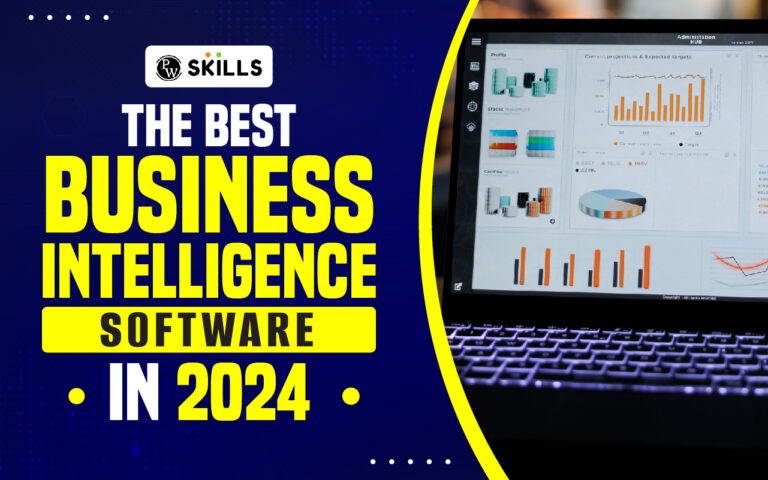
Mastering Business Intelligence Software for Small Teams: A Comprehensive Guide
In today’s data-driven landscape, small teams are increasingly recognizing the power of data to inform decisions and drive growth. Yet, the complexity and cost of traditional Business Intelligence (BI) software often seem prohibitive. This comprehensive guide explores how to master Business Intelligence software for small teams, providing insights into selecting the right tools, implementing them effectively, and leveraging data to achieve tangible results. The core concept of this article is to help small teams to master Business Intelligence software.
Understanding the Need for Business Intelligence
Before diving into the specifics, it’s crucial to understand why Business Intelligence is so vital. BI empowers teams to collect, analyze, and visualize data, transforming raw information into actionable insights. This, in turn, allows for data-driven decision-making, improved operational efficiency, and a deeper understanding of customer behavior. For small teams, these benefits can be game-changing, enabling them to compete more effectively and scale strategically. Mastering Business Intelligence software is the key.
Choosing the Right Business Intelligence Software
Selecting the right software is the first and arguably most critical step. The market offers a plethora of BI tools, each with its strengths and weaknesses. For small teams, the following factors are particularly important when selecting Business Intelligence software:
- Cost-Effectiveness: Small teams often operate on tight budgets. Look for affordable solutions, potentially with subscription-based pricing.
- Ease of Use: The software should be intuitive and easy to learn, minimizing the need for extensive training or specialized expertise.
- Scalability: The chosen solution should be able to grow with the team’s needs as they expand.
- Integration Capabilities: The software should seamlessly integrate with existing data sources, such as CRM systems, spreadsheets, and databases.
- Reporting and Visualization: Robust reporting and visualization features are essential for presenting data in a clear and understandable format.
Popular options for small teams include:
- Tableau: A widely used platform known for its powerful visualization capabilities and user-friendly interface. It is a great software to master Business Intelligence.
- Power BI: Microsoft’s offering, providing excellent integration with other Microsoft products and a competitive pricing model. Business Intelligence software is the focus.
- Qlik Sense: Another strong contender, offering a flexible and associative data modeling engine.
- Zoho Analytics: A cloud-based BI platform designed for small and medium-sized businesses, known for its affordability and ease of use.
Implementation Strategies for Small Teams
Once the software is chosen, the next challenge is implementation. A successful implementation requires careful planning and execution. Here’s a step-by-step guide:
- Define Objectives: Clearly articulate the goals of using BI software. What specific questions do you want to answer? What key performance indicators (KPIs) will you track?
- Identify Data Sources: Determine the data sources that are relevant to your objectives. This may include sales data, marketing data, customer data, and operational data.
- Data Preparation: Clean and prepare the data. This involves removing duplicates, correcting errors, and transforming data into a consistent format.
- Data Integration: Connect the BI software to the identified data sources. This may involve using built-in connectors or creating custom integrations.
- Data Modeling: Organize the data in a way that makes it easy to analyze and report on. This may involve creating data models and defining relationships between different data sets.
- Report and Dashboard Creation: Build reports and dashboards that visualize the data and highlight key insights.
- Training and Adoption: Train team members on how to use the software and encourage them to adopt it as part of their daily workflow.
Leveraging Data for Actionable Insights
The true value of Business Intelligence lies in its ability to transform data into actionable insights. Small teams can leverage data to:
- Improve Sales Performance: Analyze sales data to identify top-performing products, sales channels, and customer segments.
- Optimize Marketing Campaigns: Track marketing campaign performance to identify the most effective channels and messaging.
- Enhance Customer Experience: Analyze customer data to understand customer behavior and identify opportunities to improve customer satisfaction.
- Streamline Operations: Identify bottlenecks and inefficiencies in operational processes.
- Make Data-Driven Decisions: Use data to inform decisions about product development, pricing, and resource allocation.
Overcoming Common Challenges
While Business Intelligence offers significant benefits, small teams may encounter challenges. These include:
- Data Quality Issues: Inaccurate or incomplete data can lead to flawed insights. Implement data quality checks and data governance procedures.
- Lack of Expertise: Some small teams may lack the technical expertise to implement and maintain BI software. Consider hiring a consultant or providing training to team members.
- Resistance to Change: Some team members may be resistant to adopting new tools and processes. Communicate the benefits of BI and provide adequate training and support.
- Data Security Concerns: Ensure that data is protected from unauthorized access. Implement security measures, such as user authentication and data encryption.
Case Studies: Small Teams Thriving with Business Intelligence
Several small teams are successfully using Business Intelligence to drive growth and improve performance. For example, a small e-commerce business might use BI to analyze sales data, identify popular products, and optimize its marketing campaigns. A small marketing agency could use BI to track campaign performance, measure client satisfaction, and improve its service offerings. A small team must master Business Intelligence software.
The Future of Business Intelligence for Small Teams
The future of Business Intelligence for small teams is bright. As technology evolves, BI tools are becoming more accessible, affordable, and user-friendly. The rise of cloud-based BI solutions is making it easier for small teams to get started without investing in expensive hardware or software. The integration of artificial intelligence (AI) and machine learning (ML) is also transforming BI, automating data analysis and providing more advanced insights. The goal to master Business Intelligence software is attainable.
Conclusion: Empowering Small Teams with Data
Mastering Business Intelligence software for small teams is no longer a luxury; it’s a necessity. By selecting the right tools, implementing them effectively, and leveraging data to drive actionable insights, small teams can gain a competitive advantage, make better decisions, and achieve sustainable growth. This guide provides the roadmap for small teams to embark on their BI journey. Through careful planning and execution, any small team can harness the power of data and achieve remarkable results. The key is to master Business Intelligence software.
[See also: Related Article Titles]

